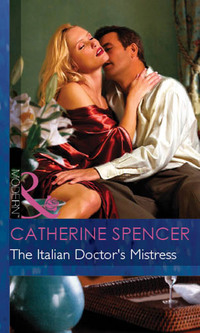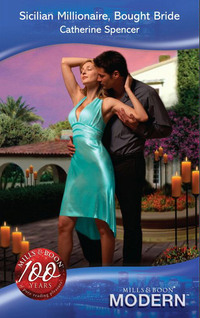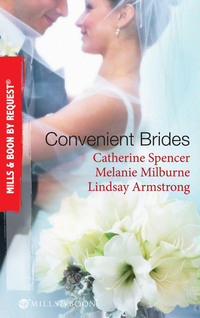
Полная версия
Mackenzie's Promise
He had the wherewithal to help her: contacts in high places, should he need them; knowledge and experience by the bushel right at his fingertips. But he’d laid down a set of rules by which he’d sworn to live. Rules which spared him having to call on any such resources.
It was fear, not rules, which held him back now, though. Fear that all he could do at this stage was discover she’d left it too late. Fear that, at the end of it all, the only thing she’d be taking back to her sister was a miniature white casket holding a baby’s remains.
He couldn’t go through that a second time.
Restlessly he paced the length of the deck and back, then turned for one last glance down at the beach. It lay deserted, not just directly below the house, but as far as the eye could see to either side. Not a living soul marred the two-mile expanse of sand he called his backyard.
She’d given up. Gone back to wherever she’d come from, or else in search of someone else’s help. He could eat dinner with a clear conscience. Praise the Lord!
His kitchen faced southeast, with a patio beyond the sliding glass door which caught the morning sun. He kept his barbecue out there, a gas-powered luxury model designed for year-round use regardless of the weather, but especially suited for an evening such as this.
He’d pulled a steak from the freezer and was in the process of searching the refrigerator for salad fixings when the bronze knocker on his front door struck the solid plank of oak. Not loudly or confidently or imperatively, the way he’d have approached it, but with a timid little pflunk!
The sixth sense which had served him so long and so well during his years on the force clicked into gear. Muttering a few choice words not fit to be heard in decent company, he strode through the living area to the hall, already resigned to what he knew he’d find waiting outside.
“Please,” was all she said when he opened the door, and he was lost. Lost in the bruised shade of her eyes, more blue than green in the descending twilight. And lost in that simple entreaty which spoke more poignantly than a flood of more urgent and articulate pleas.
“I should have realized you couldn’t disappear into thin air quite that fast,” he said, gesturing her inside.
She was shivering, pale, and just about ready to drop in her tracks. He grasped her upper arm and was shocked at how chilled her skin felt—far more than the cooling outside temperature merited. Shocked, too, by her air of frailty. “When did you last eat?” he inquired sharply.
She thought about it for a second, then said, “I stopped for coffee this morning.”
“I’m talking about a square meal.”
“I don’t know.” She lifted her shoulders indifferently. “Last night, I guess.”
Mac swore again, and propelled her to the leather couch in front of the fireplace. “Sit!” he ordered, and after she responded to the command like a well-trained member of the dog squad, he grabbed the knitted afghan his mother had sent him and flung it around her shoulders.
She curved herself into its warmth and blinked. She had the longest damned eyelashes he’d ever seen. Indulging in a few more choice obscenities—old police habits died hard—he knelt to put a match to the wood and kindling already laid in the fire grate then, while the flames took hold, returned to the kitchen and heated water to make a mug of his special hot rum toddy.
“Here,” he said, marching back to the living room some five minutes later. But she was already zonked out. Head cushioned against the arm of the couch, feet tucked under her, she slept like a baby.
Parking the rum toddy on the edge of the hearth, he piled a couple more logs on the fire, then leaned against the mantel shelf and rolled his eyes in disgust. He’d grown accustomed to his comfort zone, in which he was responsible only for himself; accountable only to himself. Still, he retained just enough humanity to be touched by her troubles.
A child had gone missing, for God’s sake, and even he—especially he!—knew the burden that cast on a person’s shoulders. And he was afraid. Afraid of his response to a woman so full of need that someone had to step in on her behalf, because she couldn’t do it alone. Afraid because, of all the people she could have turned to, she’d chosen him.
He’d looked into her eyes and remembered them not for their clarity of color or symmetry of shape, but for the faith he’d seen in them, and for the grief. And he was afraid of failing again.
“Jeez!” he growled. “Why me? Of all the people living along this stretch of coastline, why the hell did I have to open my door to this particular stray?”
She stirred. Puffed a little breath between her lips. Sighed. And settled more comfortably into the corner of the couch.
Sighing himself, he stalked back to the kitchen and yanked open the freezer in search of another steak. No point in deluding himself. She was there for the duration, whether or not he liked it.
But lest there be any doubt, he liked it not one bit and intended driving the message home to her as soon as she was alert enough to comprehend it—which, given her present comatose state, was unlikely to be anytime soon.
CHAPTER TWO
THE eerie sense that she was being watched—scrutinized with unblinking intent, in fact—penetrated the mists of sleep and lent an even greater edge of danger to the fitful dreams chasing her.
Jarring awake, she sat up too suddenly and took a moment to get her bearings. Leather warm and smooth as satin against her bare skin, a soft wool shawl caressing her shoulders, a tingling numbness creeping down her right leg. Her face touched by the heat from a fire whose flames danced in reflection on the wall of windows to her left. A framed painting above the mantelpiece, of majestic evergreens marching up a mountainside. Massive beams supporting a high ceiling. Music—a Chopin nocturne, she guessed—flowing from a sound system housed in an open cabinet made of some dark wood inlaid with ivory.
And in a tanned face of incomparable male beauty, cool watchful eyes the color of storm clouds, dissecting her, feature by feature.
He lounged in a chair on the opposite side of the granite hearth, an old-fashioned glass one-third full held negligently in one hand. He’d showered and changed since he admitted her to the house. His hair gleamed thick and black against his skull, and she detected a faint and pleasant whiff of aftershave. He wore a long-sleeved shirt almost the exact shade of his eyes, and black cargo pants.
Relaxed and casual, one might have been fooled into believing. Except there was nothing relaxed or casual in his unswerving observation, and she knew without a shadow of doubt that, had the need arisen, he’d have uncoiled out of that chair in a stunning blur of speed and power. He was part man, part machine; frighteningly intelligent, and terrifyingly detached.
“How long have I been asleep?” she asked him, her voice croaking from a throat grown dry and gritty.
“Close to an hour.”
“You should have woken me.”
“Why?”
“Because…” she said, then, unable to come up with a reason that didn’t sound either affected or downright silly, drifted into silence.
“I already told you once, ‘because’ isn’t a reason.”
She wished he’d divert that unnerving stare to some place other than her face. She felt like a butterfly pinned under a microscope. Helpless. At his complete mercy. “I guess I was tired.”
“I guess you were.” He shifted in the chair, glanced briefly at his glass, took a mouthful of whatever he was drinking, and resumed his inspection of her. “You’d like to tidy up,” he said, not in question but in command. “There’s a washroom to the right of the front door.”
Normally she’d have resented his tone but it had been hours since she’d been to the toilet and nature was calling with growing insistence. Wincing, she unfolded herself from the couch and slid to her feet, the pins and needles shooting up her right leg rendering it excruciatingly sensitive to the pressure.
“Cramps,” she offered, feeling some sort of explanation was called for as she took a lurching step forward.
“You mean you’ve got your period?” he inquired dispassionately. “Sorry, I don’t keep supplies like that on hand.”
She thought she’d die. Scarlet in the face and probably over every other inch of exposed skin as well, she groped her way to the end of the couch. “Cramps in my leg,” she stammered, beating as dignified a retreat as she could manage.
The washroom bore the same stamp of masculine opulence as the living area. Pristine white marble floor tiles, dark green porcelain fixtures, brass fittings and black hand towels. Above the sink, a large oval mirror revealed a map of creases down one side of her face and her hair mashed unflatteringly against her head from where she’d lain on it.
No wonder he’d been staring at her so fixedly. He probably hadn’t seen anything quite as unsightly since the last time he’d scraped a drunk off the sidewalk, back in the days when he cruised the streets in a patrol car.
She did the best she could with soap and water, but she’d left her bag in her car at the top of his driveway and much though she’d have loved to get her hands on her toothbrush and a comb, she wasn’t about to leave the house and risk not being allowed back in again. He’d just have to put up with her as she was.
“It took you long enough,” he informed her, when she reappeared. “Men can do what they have to do in half the time it takes a woman.”
“They also stand up to do it,” she snapped without thinking, and blushed again as he let out a rumble of laughter.
“Here,” he said, handing her a steaming mug. “Maybe this’ll warm you up and sweeten your mood.”
She sniffed the contents suspiciously. “What is it?”
“Hot rum and lemon with sugar. I just reheated it. Watch you don’t burn your mouth.”
“I don’t like rum.”
“And I don’t like strays coming down with pneumonia under my roof, so do as you’re told. You aren’t dressed for the kind of temperatures we get out here in the evening.”
“I’m not cold.”
He traced the tip of his finger over her bare arm. “Then why the goose bumps?”
Because you’re touching me, she thought, unable to control a shiver. “Reaction setting in after sleeping, I suppose. It’s not uncommon.”
“Maybe not, but I don’t want to take any chances.” He tucked the knitted shawl around her shoulders and nudged her toward the fire. “Sit on the hearth awhile and down the rum while I fix us some food. You eat red meat?”
“Would it make any difference if I said ‘no’?”
“Not a bit,” he replied cheerfully. “I’m having steak and a baked potato, with salad and mushrooms on the side. You can either join me or watch me.”
“Steak will be fine,” she told him, wondering what demon of perversity made her take issue with him when what she most wanted was to win his cooperation. “Thank you for inviting me to stay.”
He laughed again, unkindly this time. “As if I had any choice! Medium rare okay?”
“Perfect.”
The hot rum and lemon tasted remarkably pleasant and slid down her throat in a rich, syrupy stream, warming her as thoroughly within as the fire did on the outside. Beyond an open archway at the far end of the room, she could hear him moving around, clattering utensils and running water. She found the sounds oddly comforting; a refreshing return to normality, after too many weeks fraught with anxiety and fear.
The fading glow of sunset streamed across the plain white wall opposite the windows, painting it in pastel stripes of celadon and peach. Hugging the mug in both hands, she strolled to the sliding glass doors overlooking the ocean.
The view was breathtaking, stretching as far as the eye could see over ocean and sand, cliffs and stunted, weather-bent pines. A person could gaze at the sight every day for the rest of his life, and not grow tired of the spectacle. Small wonder he’d chosen this spot as his retreat.
The huge room behind her was scarcely less impressive. He’s filthy rich, Melissa had said, and it had been no exaggeration. In addition to the one she’d noticed above the fireplace, a number of other paintings hung on the whitewashed walls, some oils, some watercolors, and every one an original. There were other items, too, which told something of his taste: a jade carving of a woman rising from a pool, her arms upstretched; a crouching mountain lion fashioned from onyx; a wide, shallow bowl of beaten copper holding a selection of bleached seashells, and a tall brass samovar.
Dark Turkish rugs left splashes of color over the pale wood floors. The leather on the couches was soft and pliant as velvet. His dining table, big enough to seat twelve with ease, gleamed with the patina of age.
“Have you lived here long?” she asked, coming to lean in the archway and watch him at work.
“Going on four years.”
“It’s a very handsome house. You were lucky it came on the market just when you were ready to buy.”
“It didn’t. I found the land and had the house built to my specifications.”
“Oh.” She scanned the kitchen, noting its top-of-the-line appliances, the finely crafted cabinets, the big work island with a slotted rack holding a selection of expensive knives built into one side. “Did you design the kitchen, too?”
“Right down to the last floorboard.”
“I’m impressed.”
“Why? Because I own more than a can opener and a frying pan?”
“No. Because most men don’t have the eye for detail which you seem to possess.”
“It comes with the territory,” he said, separating the yolk from the white of an egg and whisking it into a bowl with olive oil, lemon juice, a little anchovy paste and a dash of Worcestershire sauce. “I used to make my living noticing details. They’re critical in the solving of crime. You plan on sleeping with anybody tonight?”
She blinked, taken aback by the sudden change of subject. “I beg your pardon?”
“I asked if you planned—”
“I heard!” she said. “And I’m wondering why you think it’s any of your business.”
“Well not because I’m hoping you’ll climb between the sheets with me, cookie, if that’s what you’re afraid of.”
“What a relief! But that still doesn’t answer my question.”
With superb disregard for its razor-sharp edge, he juggled a chef’s knife in his right hand, and slammed the flat side of the blade on a clove of garlic, reducing it to a pulverized mound on the chopping board. “I like plenty of this in my salad dressing. If you don’t and you’ve got a hot and heavy night ahead, you might prefer—”
“I’ll be sleeping alone.”
“Oh, yeah? Where?”
“I haven’t decided.”
He stopped what he was doing and very deliberately fixed her once again in that daunting stare, except that this time, she detected an element of incredulity in its depths. As if he’d just discovered she was missing a vital part of her anatomy—like a brain. “Are you telling me you don’t have a hotel room lined up?”
“Not yet,” she admitted, trying to sound unconcerned.
“Not yet?” He raised his rather wonderful eyes heavenward as if communing with God, although he stopped short of asking, Why me, oh Lord? “What you really mean is you don’t have the first idea where you’re going to stay.”
His tone and manner suggested he thought she was too mentally defective to comprehend the situation. Retaliating, she said, “I’m well aware I won’t find a room right here in Trillium Cove, Mr. Sullivan.”
“Congratulations,” he sneered. “Are you also aware you’re not likely to find one within a fifty-mile radius, because this is high tourist season and even fleabag No-Tell Motels fill up by midafternoon?”
“Should I find that to be the case, I’ll sleep in my car,” she said rashly.
“If that’s supposed to make me feel sorry for you, you’re wasting your time. There are worse things than sleeping in a car. Ask any one of the hundreds of homeless people who consider a park bench luxury accommodation.” He scooped forks from a drawer, steak knives from the rack and sent the lot skimming over the work island toward her. “Here, make yourself useful, for a change. Set the table. You’ll find place mats and stuff inside the sideboard in the dining area.”
“Is ‘please’ a part of your vocabulary?” she snapped, catching the cutlery just before it flew off the granite surface and crashed to the floor. “Or didn’t your mother think it necessary to teach you any manners?”
He treated her to an evil and altogether beautiful grin. “I’m a Neanderthal, remember? We don’t do manners. And leave my mother out of this. She managed to raise five kids on her own without losing any of us, which is more than can be said for the family you come from.”
She supposed she deserved that, but it hurt anyway. And served to remind her why she was there to begin with. If she wanted this man’s help, she’d better fine-tune her approach. “I apologize,” she said, swallowing her aggravation. “I shouldn’t have brought your mother into this. I’m sure she’s a very fine lady.”
“Yes, she is,” he said. “And I’m a jerk to have said what I did about your family, so that makes us even. How do you feel about California shiraz?”
She found his habit of switching subjects without warning or lead-in highly disconcerting. “To drink, you mean?”
“No, cookie. To use as shoe polish.” He shook his head in mock despair. “Of course to drink—unless you don’t like it any better than the rum you were so quick to denounce but which, I notice, you managed to drain to the last drop.”
“I enjoy a good shiraz,” she said. “Also cabernet sauvignon and pinot noir. And my name is Linda. Kindly refer to me as such—or Ms. Carr, if you prefer.”
He favored her with a steely glance. “Lest we forget who’s in charge around here, let’s run over the ground rules. First, this is my house. Second, I didn’t invite you to come here. Third, I don’t take orders from anyone, particularly not a total stranger who’s looking for a favor. Remember that. Cookie.”
For the space of a second or two, she glared right back, a dozen pithy retorts buzzing through her mind and begging to be aired.
Forestalling her, he grinned again. Pleasantly this time. Disarmingly so. “Don’t do it, Linda,” he warned. “Don’t say something you’ll regret. And don’t gnash your teeth like that. It makes you look like a bad-tempered dog.”
“A rottweiler, I hope. One capable of ripping your throat out!”
He laughed. He was laughing, she decided, altogether too often and always at her expense. “Afraid not. You don’t have the hindquarters for it.”
She was wearing shorts, which fit trimly around her hips and showed plenty of leg, and the way he eyed her from the waist down left her in no doubt that he liked what he saw. Absurdly flattered, she blushed.
“Thought that’d soften you up,” he said with smug satisfaction. “Now hop to it and set the table. I’m about ready to throw these steaks on the barbecue. And one more thing: if you can do it without lopping off a finger or two, slice up that French loaf over there.”
She glared at his departing back. Much more provocation, and she’d slice him!
The steak was done to perfection, the potatoes tender and flavorful, the mushrooms, sautéed in butter and port wine, mouthwatering.
“You’re a good cook,” she said.
“I know,” he replied with disgraceful immodesty.
“Do you eat at this table when you’re alone?”
“No,” he mocked. “When there’s no one around to watch, I get down on my hands and knees, and slurp out of a bowl on the floor.”
“You don’t have to be so rude! I asked only because your dining room furniture is so big and from everything I’ve learned, you aren’t the kind of man who hosts large dinner parties.”
“You investigated me pretty thoroughly before you came calling, did you?”
“Enough to know you’re something of a recluse and don’t have many friends.”
“I have friends, Linda,” he informed her flatly. “Not many, I admit. I prefer to be selective. As for the furniture, it was my grandmother’s, and her mother’s before that. The table will seat twenty when it’s fully extended. They went in for lots of children in those days.”
She found it interesting that, for a man who shunned the company of others, he’d mentioned his family twice with obvious affection. “And you’re one of five yourself, you said?”
“My mother had five sons.”
“And brought them up by herself? My goodness, she must have had stamina!”
“She had no choice. My father died before my youngest brother was born.”
“Oh, how tragic! What happened?”
“Nosy, aren’t you?”
“I don’t mean to be insensitive. But the story is so…moving. A woman alone, with five little boys, one of them a baby who never got to meet his father…” She swallowed, the whole concept hitting a little too close to home.
“My father was a police officer killed in the line of duty.”
“Is that why you joined the force?”
“Yes,” he said brusquely. “He was my hero. I was ten when he died, and I remember him very well. He was a good man, a good father. My mother’s family were true monied blue bloods and never understood why she wanted to marry a cop when she could have had a life of ease with any number of other men. But she adored him and he her.”
“She never remarried?”
“With five boys?” he scoffed. “Even the men my grandparents tried to line her up with after she was widowed weren’t interested in taking on a gang like us, any more than she was interested in finding another husband. She’d had the best, she always said, and knew there’d never be another like him—except, possibly, for his sons who resembled him so closely that she couldn’t have forgotten him, even if she’d wanted to.”
Unexpectedly touched, Linda said, “It’s a sad but lovely story, Mr. Sullivan. It makes me doubly regret that comment I made earlier about your mother. She sounds quite remarkable.”
Actually, “superhuman” was probably closer to the mark, if her eldest son was anything to go by. He displayed a sophistication and certain male elegance strangely at odds with the tough resilience which was the legacy of his days as a police detective.
Watching him from beneath her lashes, she admired the lean, clean grace of his hands as he lifted his glass, and wondered if he handled a firearm with the same deft panache he brought to the dinner table. She suspected that he did; that even under extreme duress, he endowed his every gesture with innate style.
He might have inherited his father’s looks, but his mother’s aristocratic genes showed in his bearing, in his manner. Underneath that sometimes surly exterior lurked the heart and soul of a gentleman. She had only to look around his home to recognize his inborn good taste.
“My mother’s all that, and then some,” he said, reaching over to pour more wine into her glass. “And now let’s talk about you. Do you have any other siblings besides your sister?”
“No.”
“Which of you came first?”
“I did, by six years.”
“Making her about twenty.”
“Twenty-two.”
“In other words, plenty old enough to have developed the smarts to steer clear of a man so rotten inside that he’d steal her baby.”
Linda’s hackles, temporarily soothed by that brief glimpse of his more human side, rose again in defense. “I no more like it when you pass judgment on my sister without knowing the first thing about her, than you did when I presumed to criticize your mother.”
“But I do know something about her,” he said, unruffled. “I know she’s an unmarried mother, and her relationship with the father didn’t pan out. She was probably spoiled as a child and never got over being the baby of the family. When things went sour with the boyfriend, she probably moved back home to be looked after by good old mom and dad.”
“And how do you arrive at those conclusions?”
“When I’m faced with a situation in which the mother of a missing child isn’t the one raising hell and putting a lid on it, there are only two conclusions I’m likely to reach. Either she doesn’t care, or she’s the passive, helpless kind who leaves it to someone else to go to bat for her.” He shrugged and raised both hands, palms up. “It doesn’t take a genius to figure that out, now does it?”











